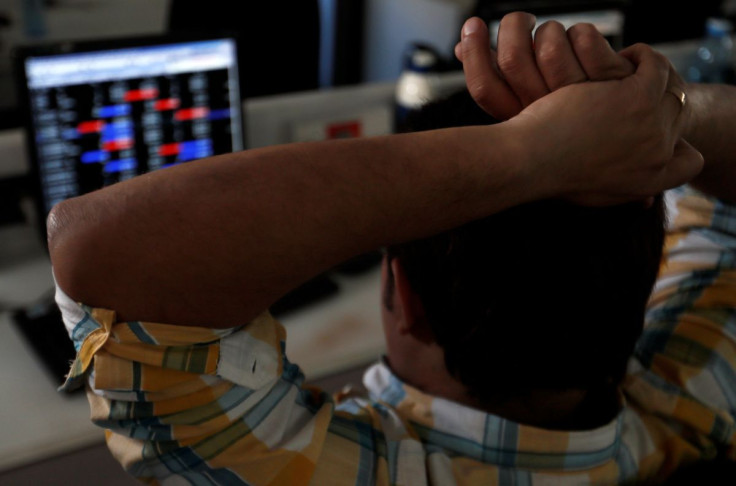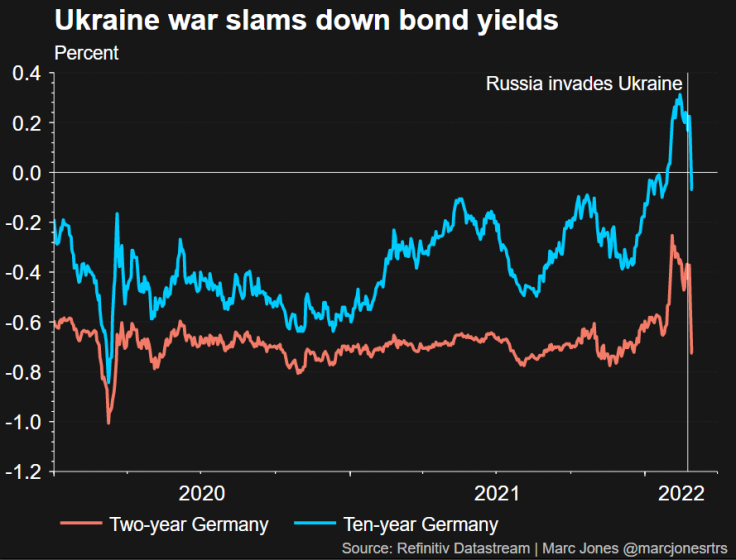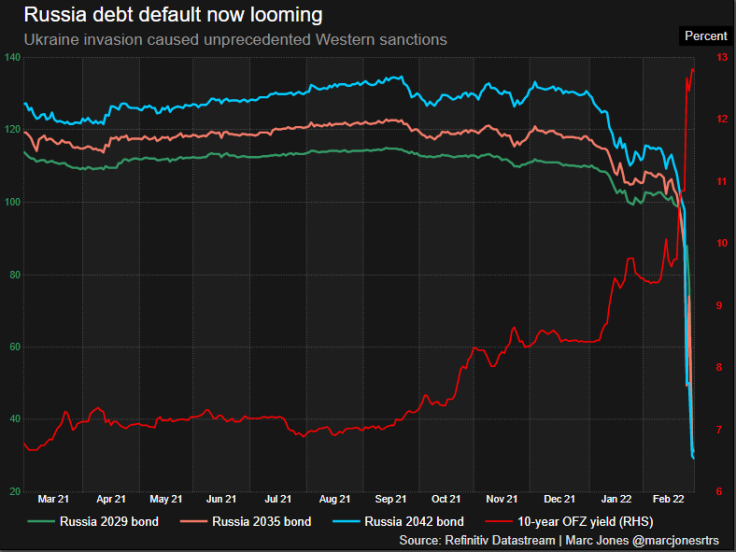Stocks Make Small Gains But Ukraine Crisis Keeps Investors Cautious

Stocks markets saw some small gains on Wednesday but oil spiked further and the rouble fell, as Russia showed no signs of stopping its assault on Ukraine.
A week after Russian President Vladimir Putin ordered a full-scale invasion of its neighbour, the bombardments of Ukrainian cities continued while Western nations tightened sanctions on Moscow.
U.S. President Joe Biden banned Russian planes from U.S. air space, warning Putin had "no idea what's coming."
European stocks made some tentative gains, having initially opened in the red. The STOXX 600 was up 0.1% on the day at 1232 GMT , while Germany's DAX was also up 0.1%.
S&P 500 and Nasdaq futures were both up 0.5%.
European banking shares recovered somewhat, having fallen after the European arm of Russia's Sberbank was forced to close.[nL1N2V43GD]
The MSCI world equity index, which tracks shares in 50 countries, was still down 0.3% on the day.
With Moscow having failed in its aim of swiftly overthrowing Ukraine's government after nearly a week, Western countries are worried that it is switching to new, far more violent tactics to blast its way into cities it had expected to easily take. [nL1N2V50G9]
"The fact that it's lasting, the fact that it's becoming more brutal, is clearly changing the growth outlook and that's what we've seen in terms of market reacting, equities going down and bonds rallying quite significantly," said Antoine Lesne, head of ETF strategy and research at State Street's SPDR ETF.
Oil prices surged, with Brent crude touching $113.02 - its highest since 2014 - and U.S. crude coming close to passing its 2013 peak.
The U.S. 10-year yield was at 1.7684%, picking up slightly, having dropped sharply in the previous two sessions.
Germany's benchmark 10-year government bond yield was up 6 bps. On Tuesday, it plunged back into negative territory in its sharpest single-day drop since 2011 -- a sign of investor demand for the safe-haven asset.
Graphic: Ukraine war slams down European bond yields-

SPDR's Lesne said exchange-traded fund (ETF) flows in the United States rose last week as investors used them to take risk-off positions, but in Europe flows were "more muted." Lesne said he had not suspended any funds with exposure to Russia.
The best performing ETFs were those exposed to European healthcare and utilities, he said, as well as energy-linked ETFs.
Top asset manager BlackRock Inc said on Tuesday it was consulting with regulators, index providers and other market participants to help clients exit their positions in Russian securities where allowed.
The rouble was down around 3.5% on the day versus the dollar, at 108.7 , having weakened to a record low of 117 per dollar on Tuesday.
Foreign investors are effectively stuck with their holdings of rouble-denominated bonds, known as OFZs, after the Russian central bank put a temporary halt on coupon payments and a major overseas' settlement system stopped accepting Russian assets.
JP Morgan analysts said in a note the sanctions on Russia have "significantly increased the likelihood of a Russia government hard currency bond default".
The U.S. dollar index was up 0.2% . The euro was down 0.2% at $1.11025, and hit a new seven-year low against the Swiss franc.
Graphic: Russia international debt default looming-

© Copyright Thomson Reuters 2024. All rights reserved.







